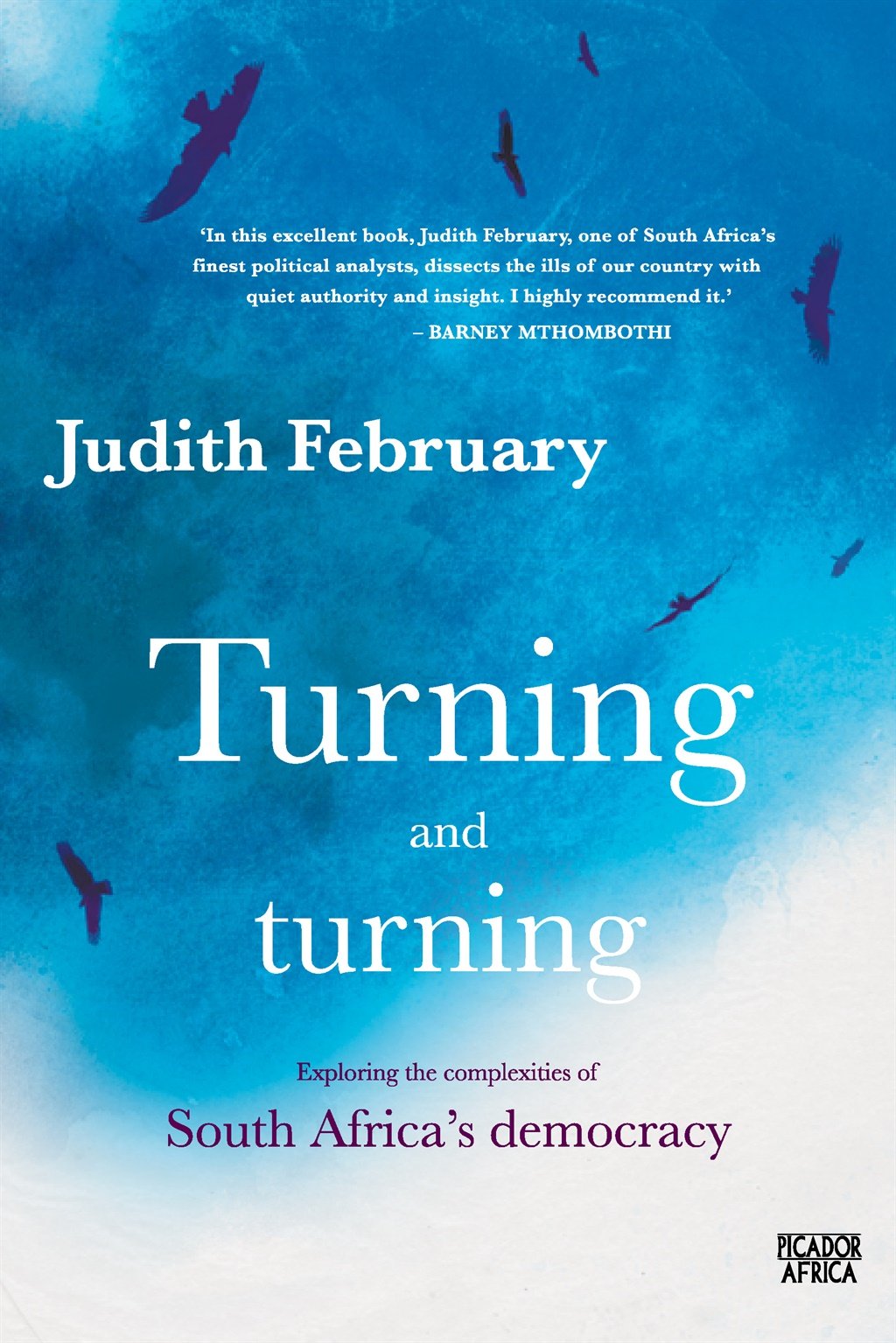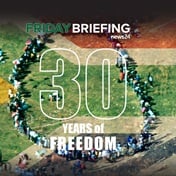
When President Thabo Mbeki quoted The Second Coming by WB Yeats in his opening address at the 18th World Petroleum Congress in Johannesburg in 2005 – the first of many times he has quoted the Irish poet – his words could not have been more prophetic.
Turning and turning in the widening gyre
The falcon cannot hear the falconer;
Things fall apart; the centre cannot hold;
Mere anarchy is loosed upon the world
Thirteen years later, with South Africa and the ANC stuck in an ever-widening vortex of populist concessions to make up for its own failures of the past 24 years, the poem provides an apt title for political analyst and governance specialist Judith February's book on democracy in the southernmost country in Africa.
Turning and Turning is an authoritative account of the seminal developments that inadvertently led South Africa down the path to where it is at the present moment: a restless country where the people's impatience with the slow pace of economic transformation stands in direct contrast to government's failing efforts to address inequality.
How did we get here? February traces the problem back all the way to legislation around political party funding and the lack of transparency afforded by it; the fact that this allowed the ANC to benefit financially from the "Arms Deal" and the political developments that followed in the wake of the deal that birthed the Zuma years.
"When you have someone like Jacob Zuma at the top, who's only interested in himself and the enrichment of his associates, that leaves an 'empty top' or a vacuum," February explains.
"In the vacuum, anything goes. You have people attacking the Constitution; you have people like Julius Malema attacking the rule of law, and Parliament descending into chaos. You have people burning everything in protest. You also have students from the Fees Must Fall movement saying things about decolonisation and race in absolute thoughtlessness, because anything goes because there's no leadership."
In short, the vacuum breeds bad politics and poor governance. Now – instead of admitting they have failed the people, and under pressure from the populist forces triggered by the Zuma years – the ANC itself has reverted to populism, inducing the sort of public rhetoric we're seeing around race and land. With it, an intolerance for a more nuanced conversation about issues of inequality has taken root.
"To an extent, the level of discourse we've descended to is also a product of the time we live in, where people want easy answers immediately. So, we're not dealing with facts and have a public discourse that quickly descends to the lowest common denominator. We have to find ways to be able to deal with complexity," says February. "We're not going to solve our problems overnight – all our solutions are for the long haul."
'We need to be active'
For government to make this work, February believes Ramaphosa is going to have to draw a line in the sand, admit to the challenges and failures and how we got here. Most importantly, he's going to have to hold the centre of the ANC.
Last week, analysts inferred that Ramaphosa had finally given in to the populists in the ANC when he announced that the ruling party would pursue an amendment to the Constitution that would state specifically under which circumstances land may be expropriated without compensation. This is cause for concern.
"Whether Mbeki was referring to the centre of the ANC or that of the country when he quoted Yeats – and I think he was referring to the ANC – the centre has to hold," says February. "I believe most South Africans are somewhere in the middle ground. However, whether Ramaphosa can hold the centre of the ANC is an open question."
February echoes the sentiments of former US President Barack Obama's during the Nelson Mandela Annual Lecture in July this year, referring to the importance of civic activism and the role of local communities.
"I think there is a quotient of hope, in that South Africa has a lot going for it. We can't think about the ANC solving our problems; we need to be active. Democracy is made in communities in small ways and it's incremental – it's about how people organise," she says.
"Our institutions have held up. The media has done a brilliant job in terms of exposing corruption, people are still participating in parliamentary processes like the one on land reform. Democracy is about citizens demanding accountability. We must look beyond one individual and be more active to achieve the 'new dawn'."




 Publications
Publications
 Partners
Partners























